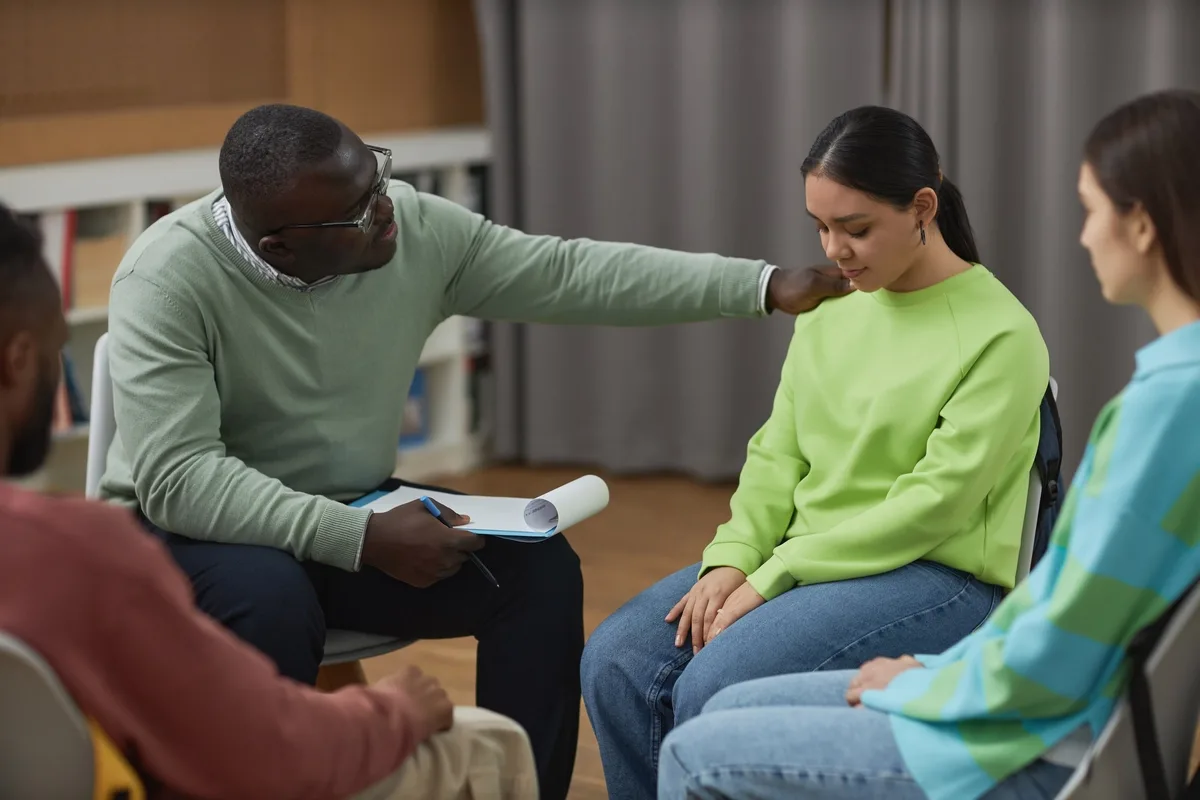24/7 Helpline:
(866) 899-221924/7 Helpline:
(866) 899-2219
Learn more about PTSD Treatment centers in Sapello
PTSD Treatment in Other Cities

Other Insurance Options

Providence

MHNNet Behavioral Health

American Behavioral

Optima

Lucent

WellCare Health Plans

Ceridian

Amerigroup
Beacon

Health Partners

Health Choice

Evernorth

Ambetter

Sliding scale payment assistance

UMR

Magellan Health

Multiplan

Molina Healthcare

United Health Care

Meritain













